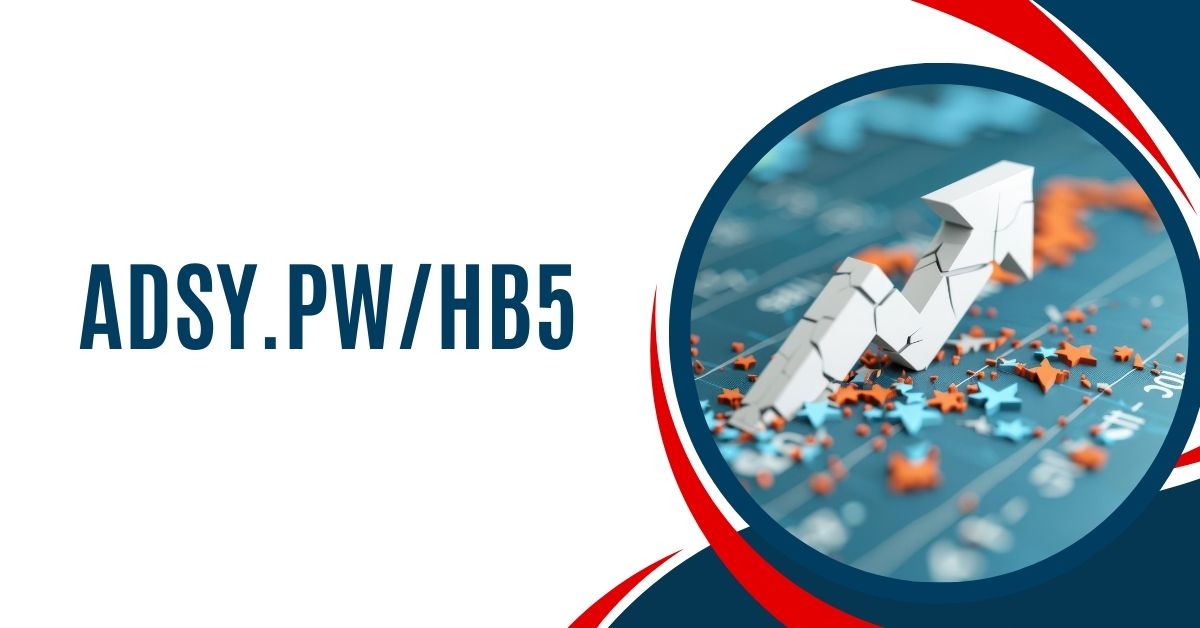If you’ve ever encountered the URL Adsy.pw/hb5, you may have wondered whether it’s a legitimate site, a redirect, or something potentially harmful. As internet users, encountering unfamiliar links can make us pause—especially when they appear across ads or messages. Understanding what a link represents and how to evaluate its credibility is crucial for safe browsing.
In this article, we’ll dive deep into the topic of Adsy.pw/hb5. We’ll explore what it might lead to, how to evaluate whether it’s trustworthy, and steps you can take to protect your online experience.
What Is Adsy.pw/hb5?
At first glance, Adsy.pw/hb5 looks like a shortened or ad-related link, often using a domain structure where pw suggests “password” or a short domain extension. These links can redirect users to various destinations—some safe, others potentially risky. The specific structure (with /hb5) may be part of a tracking or dynamic redirect system rather than a permanent website.
Understanding such links means looking past the URL and focusing on where it originates, how it’s used, and whether it aligns with secure web practices.
How to Evaluate If It’s Safe
Before clicking unfamiliar links like Adsy.pw/hb5, consider these steps:
-
Check the source. Who shared the link? If it’s from an unknown sender, proceed with extra caution.
-
Use link preview tools. Tools like URL expanders can display the real destination.
-
Scan for security. Run the link through malware and phishing scanners to detect hidden threats.
-
Trust your judgment. If the link appears in peer-reviewed content or from a reliable brand, risks are lower—otherwise keep your guard up.
These approaches help you make informed decisions and reduce exposure to potential threats.
Why People Encounter It Frequently
Links like Adsy.pw/hb5 often appear in these contexts:
-
Within digital advertising campaigns, especially those using dynamic tracking.
-
Embedded in emails or message platforms as shortened redirect links.
-
Used in promotional or affiliate marketing where keeping tracking and destinations hidden is standard practice.
Their frequent appearance doesn’t always imply malicious intent—many are simply meant to connect users with content efficiently. However, the potential for misuse warrants caution.
Common Risks and How to Protect Yourself
While many redirects are benign, some carry risks:
-
Malware downloads. Redirects could lead to sites that install harmful software.
-
Phishing attacks. Malicious sites may mimic legitimate ones to steal personal information.
-
Adware or unwanted content. Some links trigger excessive pop-ups or lead to dubious offers.
To protect yourself:
-
Always use updated antivirus and anti-malware tools.
-
Enable browser settings like smart blocking and pop-up protection.
-
Never enter sensitive details unless the site is clearly trusted and secure.
When It Might Be Legitimate
Not every unknown link is dangerous. You may safely follow links like Adsy.pw/hb5 if:
-
They are part of a trusted marketing campaign you opted into.
-
A reputable organization uses them to simplify sharing content (like downloadable files or scheduling pages).
-
Previewing tools confirm the target is known and safe.
The key is context—knowing where the link comes from and what its destination is intended to show.
Best Practices for Users and Marketers
For users:
-
Stay skeptical of short or unfamiliar links.
-
Prioritize tools that reveal hidden destinations.
-
Keep your software and security measures up-to-date.
For marketers:
-
Be transparent about the links being shared.
-
Use recognizable branding in redirects to build trust.
-
Pair ad links with clear context and secure landing pages.
These measures build digital resilience and trust in online interactions.
Conclusion
Encountering a link like Adsy.pw/hb5 can feel unsettling—but it doesn’t necessarily mean danger. The key lies in how you handle it: check its origin, preview safely, and trust your instinct. Many redirects exist for legitimate purposes like tracking and ad optimization, yet awareness and caution remain essential.
